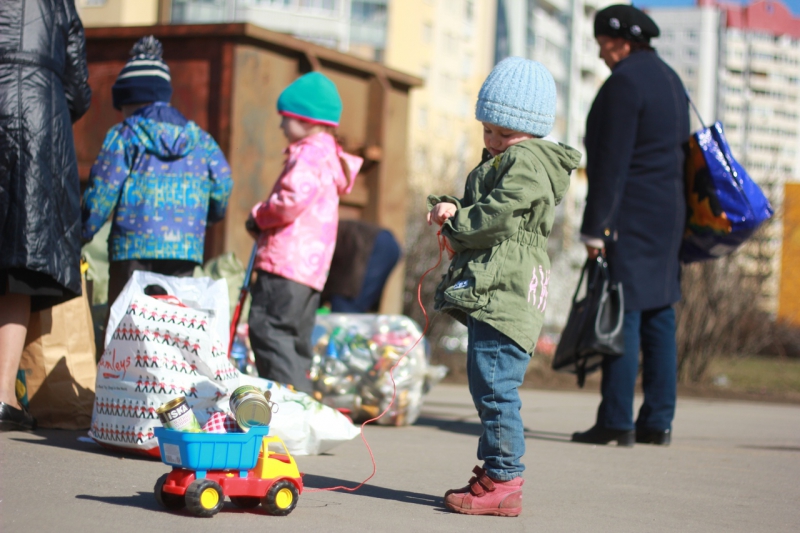Even though this is your first time at ITMO University, you started with an entire lecture course. Is it based on the course you teach at Aalto University?
My course at ITMO University is an amalgamation of three courses. In Finland, I teach a course called Environmental Engineering about the methods of achieving sustainable development, its assessment and control. Another course I teach is called Risk Analysis, and another, which no longer exists, is titled Circular Economy and it focused strongly on waste management. To develop this intensive course, I tried to bring together the best and most important parts of all three.
When did Finland start sorting and recycling waste? What was the catalyst?
This process accelerated when the European Union became concerned with the subject, but even before that, Finland sorted certain types of waste such as glass and paper. People had the opportunity to return glass bottles for recycling, for one. But that was all before all of the EU’s massive initiatives; of course, this increased interest in waste management resulted in more action and wider support.
It’s often said that Finland and Sweden recycle 98-99% of all their waste. Is this a true estimate, and how tough was it to achieve such results?
You see, when people say this they rarely explain what exactly those numbers include. For one, recycling statistics don’t include waste incineration, which produces energy. Today, a large share of unsorted waste is incinerated, not recycled. There is a power plant in the Helsinki region that produces energy from waste.
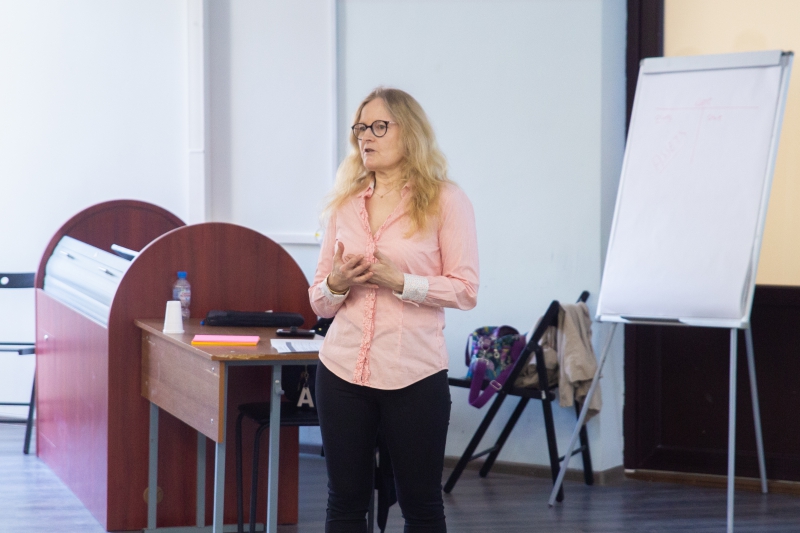
If we were to combine the recycling and waste-to-energy stats, the number would probably be close to the truth. We should also keep in mind that we may be only talking about household waste, not industrial waste. Our country actually still has landfills, so we’re not that perfect in terms of waste management; although today these landfills do not receive a lot of waste. A small portion of all waste is made up of things that can neither be recycled or converted to energy.
What are the areas in which recycled solid waste is used?
It’s quite simple. Paper is reused as paper. Glass was somewhat problematic: when we had just begun recycling it, there was no market for it. People began to realize that there were mountains of glass just laying there at every garbage dump, which was demotivating. It’s no longer an issue today.
Biowaste is used for composting. The market for it is not that large, however, and the process itself is very expensive. Compost also cannot be used in agriculture, which leaves us without a major share of the market.
Things are better with metals, as there is a high demand for all metal material. It’s a valuable resource that’s also easily recyclable.

The European Union is often held up as an example of perfect waste management, but is that really so? What issues are still prevalent in the EU and Finland?
In terms of solid household waste, the biggest challenge is changing the paradigm and getting people used to sorting waste. We’ve tried to continuously educate people starting with the kindergarten and school, and it worked. We can see that school students are environmentally conscious, which cannot be said about the older generation. Perhaps, my generation and the seniors, who were born in the post-war period, were affected by the rising income levels and got used to buying more things, more food, to a paradigm of constant consumption. Many still live like this. The younger generation, on the other hand, realizes that they cannot afford to be this reckless.
How are things going with adapting migrants to the EU’s environmental policies? Thousands of them have come from countries that never recycled waste; is there an issue with their “eco-adaptation”? How do you solve it?
That is, indeed, an issue. We have initiatives that aim to familiarize migrants with waste management. We start with the simplest thing, which is producing instructions in several languages. If you don’t know the language, you won’t know what to do. In that sense, the environment is adapting to newcomers by speaking their language. But the bigger question is how do we change the conscious of people who have never done something like this?
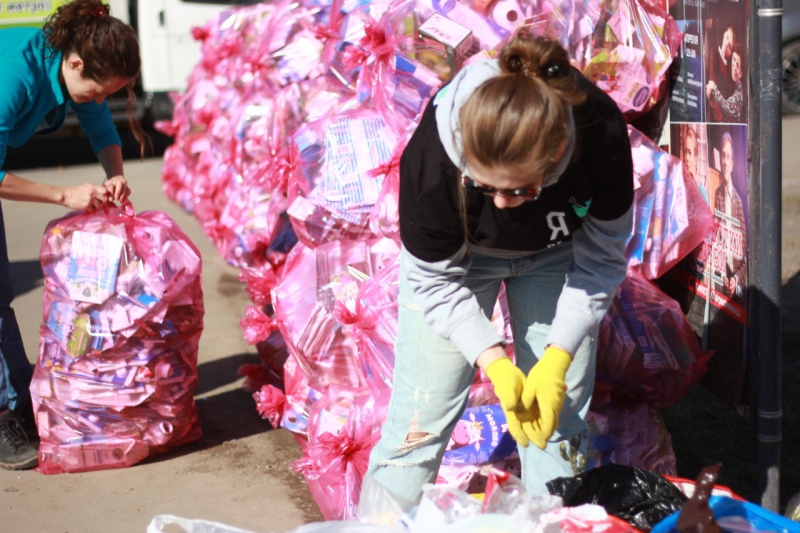
Finland has this issue, but to a lesser degree than other countries like Germany or France. We have higher standards of living, but lower migrant quotas. The ones who come to Finland are also more likely to be well-educated and, therefore, have less trouble adapting to new values.
You mentioned that Finland had waste management long before the EU’s official policy on waste sorting. We had something similar here back in the Soviet times, just under a different name. People would take glass, paper, metal, and other materials to special collection points, but then this practice fell out of fashion. In the past decade, environmental activists and conscious citizens have begun to organize waste collection points, and now we even have the Recyclemap service. How would you say a culture of waste sorting should be formed: from above or via grassroots movements?
Initiatives such as this require government oversight at least because there needs to be a market for recycled goods. You must understand that even if you sort your waste, what’s going to happen to it later? Who’s going to buy it? The government should act as a middleman between the citizens and those who buy the recycled material.
Many here in Russia don’t even believe that, once sorted, their waste will actually be recycled instead of ending up on a garbage dump.
That’s exactly what I mean. People need to be confident that their efforts will have actual results.
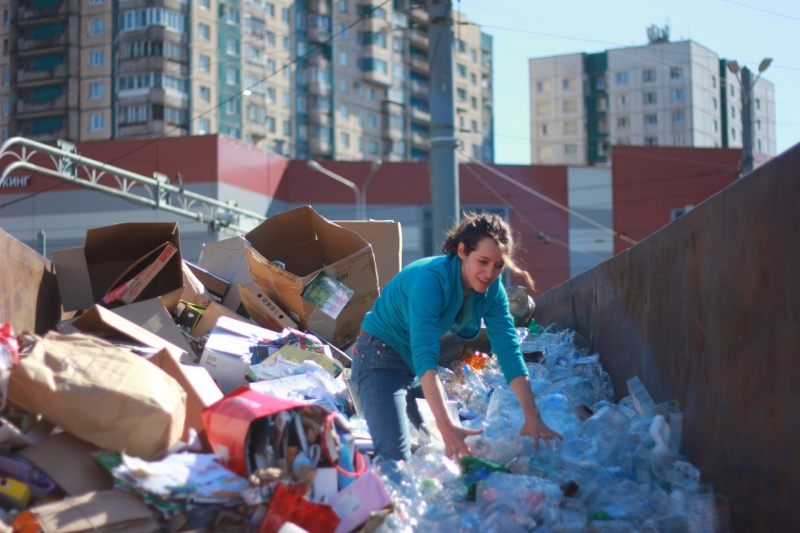
European countries, and especially the Scandinavian states, achieve results by adopting sensible waste management policies. Are these countries concerned about their neighbors, or just other countries in general, who have evident troubles with waste, such as India, Russia, or Brazil? Landfills pollute water and soil, and Russia and Finland share some of their water sources. Is it possible that one day we’ll see European countries make certain environmental demands of Russia?
Russia is indeed a very major player on many markets, and it’s very difficult to exert influence on a country like this. Personally, I don’t think that it’s possible for someone to threaten or coerce others into being eco-friendly. As for waste management, there are many local issues. There is a global effect on climate change, of course, because waste pollution affects ecosystems. But our concern is more with the local cases, which are felt by people who live in environmentally unfriendly areas.
Still, I know that the presidents of our two countries have recently discussed the issue of waste management, which means that there is awareness of the subject at the highest levels. Perhaps, the idea of someone else coming in and helping out sounds like a kind of salvation, but the initiative should come from the Russian people, because the real power in this regard is in their hands. And only then can politicians do their part by making the relevant laws.
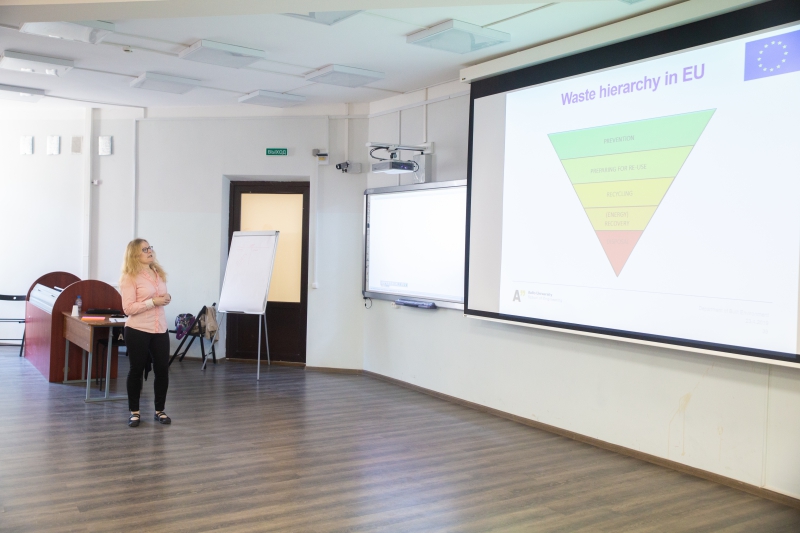
This is, in fact, regular practice for citizens to express their concern about waste issues, and for government officials to respond to that call. For the past couple of weeks, young people in Finland have been marching to voice their demand that the government should not only discuss climate change but also actively take measures against it.
The entire world is talking about the issue of plastic. Does Finland have any policies that restrict the use of plastics in various industries, such as in food production, the industry, or in beauty products?
We don’t have any special programs designed to force manufacturers to reduce the amount of plastic used in their products. There are, however, EU directives on the replacement of plastics with similar materials, which we obviously adhere to.
Companies in Finland can voluntarily take part in various initiatives. Many stores, for example, take part in the Green Deal program by committing to severely reduce their consumption of plastic bags. We can’t ban the use of plastic if there’s no alternative to it. At the same time, many companies are adopting eco-friendly policies because the public is genuinely concerned with this issue and supporting that concern improves their image.
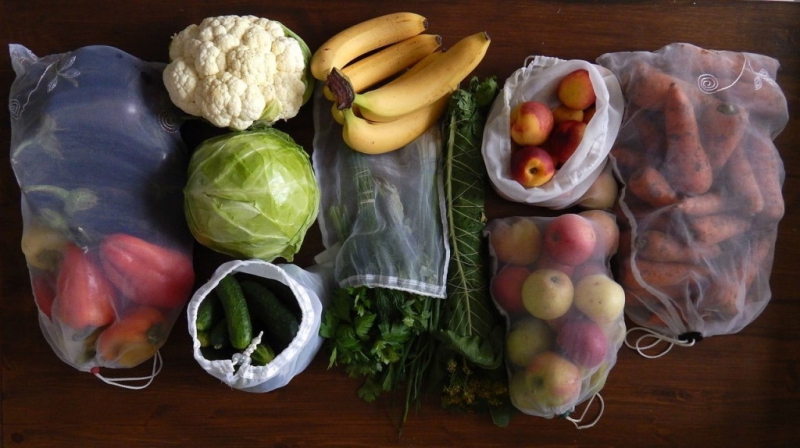
Many countries around the world still don’t have any waste sorting systems in place. Do you develop any kind of instructions or recommendations for countries that are just now finally becoming involved in waste sorting?
On the industrial level, we have several examples of profits being made from recycling, and they could be easily applied abroad. However, as I’ve said, this is something that must be done, first and foremost, by the governments, or else it simply won’t work.
